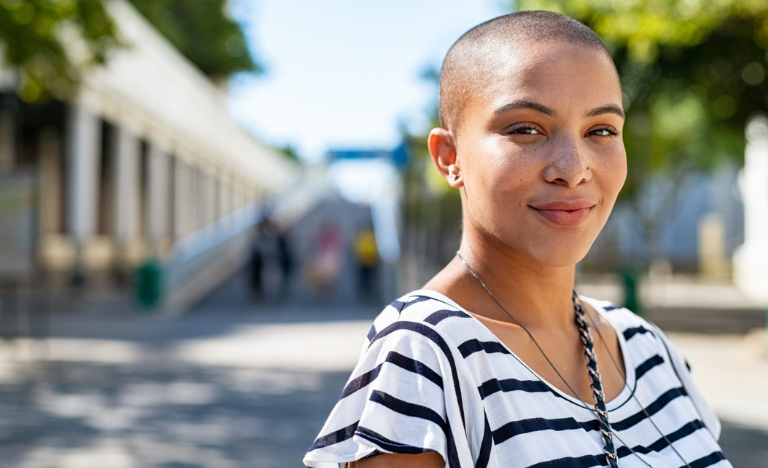Chantel* remembers exactly how it felt to get her first A+ on a college assignment this spring.
“I was always told when I was young that I wouldn’t go far in life, that I wouldn’t finish,” she said. “But when I saw that mark and a comment from the teacher that my paper was good, I was shocked, it really gave me a lift. I was so proud of myself.”
While couch surfing in recent months to try to escape a difficult home life, the 23-year-old had been getting Cs and Ds in college and showing up at work late and stressed. She soon dropped out of school and was contemplating giving up.
But then, earlier this year, Chantel learned about Creating Pathways – a pilot program at Covenant House designed to support the complex needs of female-identifying youth between 16-24 years old who are experiencing or at risk of homelessness, or sex trafficking.
After just a few short months in the program - which aims to break down barriers to housing, education and employment and help build the path towards independent living - Chantel was able to move into a new apartment, get back to school and start working with a therapist.
In many ways it helped her unlock her potential, provide some much-needed financial stability and paved the path forward towards her dreams. Now she can focus on finishing school – she’s set to graduate next spring – and pursue a career in social service work.
“It’s very satisfying to know that we have these supports available to these youth,” says Creating Pathways case manager Natacha Pinero who checks in with youth regularly and supports them through any challenges that may arise. “For a fact it is making a difference in their daily lives. I always have young women say ‘You don’t understand how much this is helping me.”
Creating Pathways provides a wide range of services tailored to youths’ needs. The biggest one is financial: youth in the program are entitled to a rent subsidy of $800 per month for up to three years and educational bursaries of up to $6,000 per year for up to three years.
This made a huge difference for Chantel, who had financial support from the program to cover first and last months’ rent on her apartment.
It’s second major focus is on mental health and building self-confidence. Creating Pathways also provides employment counselling, trauma focused mental health counselling, occupational therapy and wraparound supports through mentorship and family reconnect services. Through the program, youth are also provided opportunities to participate in teambuilding and other types of events that teach them important life skills.
Chantel had always wanted to see a therapist to help her work on improving her mental health – something Creating Pathways made possible. Notably, says Natacha, the youth can work with a therapist of their choosing so that they can feel comfortable working on their mental health together.
Being new, Creating Pathways is the subject of a research study to test the effectiveness of wraparound services in a youth’s success in independent life, Natacha said. Youth who take part are expected to fully participate so that, when they leave the program, they have the skills they need to build a life of their making and equipped to navigate challenges.
This is an element Chantel is taking seriously. After graduation, she wants to travel and build a career in the social service sector so she can help others in the ways she has been helped.
“I’m going to make this program worth my while and accomplish my dreams while these supports are here,” she said.
Best of all, she just feels better day to day – something her manager at work has even noticed.
“Now I just feel so free. I feel happy.”
Creating Pathways was made possible through a $1 million donation from The Slaight Family Foundation.

